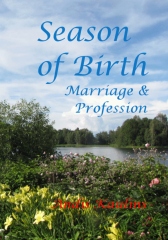Stephen Albainy-Jenei at the blog Patent Baristas has an extensive posting on In re Kubin at Court: It’s Not An Invention If You Use Conventional Techniques To Make It, writing:
"In In re Kubin (08-1184), the US Court of Appeals for the Federal Circuit held that the US Patent and Trademark Office's Board of Patent Appeals and Interferences was correct to hold claims as unpatentably obvious when applicants use "conventional techniques" to make an invention. This is bad news not just for biotech but for all arts."
The discussion by Albainy-Jenei is a good one, so be sure to read it, although we think that In re Kubin is not going to be long-term bad news for biotech or for the arts. The Federal Circuit in In re Kubin, following the United States Supreme Court's new obviousness standard in KSR, simply has finally drawn an understandable and desperately needed line for biotechnology patent applications - this far and no further. Not every foreseeable - obvious - increase in our scientific knowledge is - or should be - subject to patent protection. There is something we might call the "normal" progress of science - and that - to our mind - is not invention.
The patent situation in biotechnology has gotten as much out of hand as in the rest of the patent world. We need merely to refer to the Google Public Policy Blog where After the last time I blogged about patent reform in late 2007, the House went on to approve the Patent Reform Act. The bill unfortunately got bogged down in the Senate the following year. Since then the problems of the current system — and the need for reform — have only grown.
Consider this: Of the 20 patent lawsuits filed against Google since late 2007, all but two have been filed by plaintiffs who don’t make or sell any real product or service — in other words, by non-practicing entities or “patent trolls.” Most of these cases seem to feature the same small set of contingent fee plaintiff's lawyers asserting patent claims against the same small set of companies. We've also noticed a more disturbing trend: in many of these cases, the patents being asserted against us are owned by — and in a surprising number of cases, are even “invented” by — patent lawyers themselves.
Unfortunately, the temptations and opportunities for abuse have gotten too high. Lawyers and plaintiffs have seen the potentially huge payoffs available in patent litigation. Before 1990, there had been just one patent damage award of over $100 million. Since 1990, there have been at least 15, with at least five topping $500 million.
Subscribe to:
Post Comments (Atom)
Most Popular Posts
-
We posted previously, extensively and definitey about the need to limit biotechnology patents at In re Kubin : Hitting the NAIL on the Head ...
-
The Spread of Superbugs by Nicholas D. Kristof, March 7, 2010, at the New York Times Mobile "A study by the Union of Concerned Scientis...
-
It is often claimed that the liberal granting of patents is essential for the development of the pharmaceutical industry, especially modern ...
-
Text below crossposted from LawPundit . BRAVO to the United States Supreme Court! The unanimous (who would have believed that!) U.S. Supr...
-
Stephen Albainy-Jenei at the blog Patent Baristas has an extensive posting on In re Kubin at Court: It’s Not An Invention If You Use Conven...

No comments:
Post a Comment